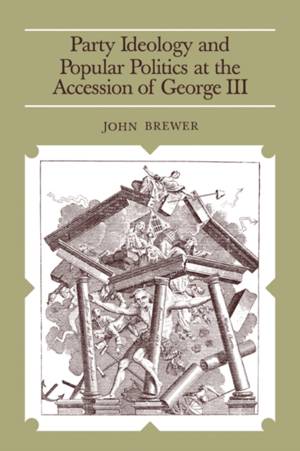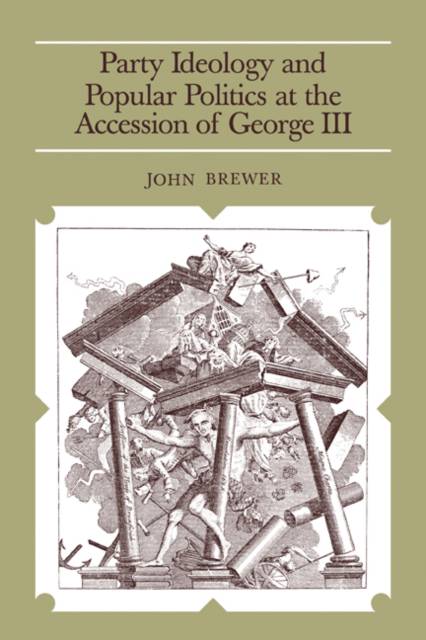
- Afhalen na 1 uur in een winkel met voorraad
- Gratis thuislevering in België vanaf € 30
- Ruim aanbod met 7 miljoen producten
- Afhalen na 1 uur in een winkel met voorraad
- Gratis thuislevering in België vanaf € 30
- Ruim aanbod met 7 miljoen producten
Zoeken
€ 90,95
+ 181 punten
Omschrijving
This book is a reappraisal of English politics in the first decade of George III's reign. It sets out to explain how party politics changed, and what problems that created for the parliamentary elite. The issues of party, of patriotism as it manifested itself in the elder Pitt's political career, and of the relations between the notions of ministerial responsibility and the powers of the Crown are all used to illuminate the nature of political conflict. Special emphasis is placed on Burke's notions of party. The schisms created by this reconfiguration of party politics, Dr Brewer argues, had effects beyond Westminster. He discusses extra-parliamentary forms of political expression, notably the press, and goes on to show how the career of John Wilkes and the critique of British politics developed by American radicals gave focus to a variety of political discontents, and produced new arguments in favour of parliamentary reform. Throughout his study he emphasises the interplay between popular and parliamentary politics. His work is designed to show that the 'political nation' included many other than the parliamentary classes, and that the political conflicts of the period cannot be properly understood without a full examination of political ideology.
Specificaties
Betrokkenen
- Auteur(s):
- Uitgeverij:
Inhoud
- Aantal bladzijden:
- 396
- Taal:
- Engels
Eigenschappen
- Productcode (EAN):
- 9780521287012
- Verschijningsdatum:
- 31/12/1981
- Uitvoering:
- Paperback
- Formaat:
- Trade paperback (VS)
- Afmetingen:
- 152 mm x 229 mm
- Gewicht:
- 580 g

Alleen bij Standaard Boekhandel
+ 181 punten op je klantenkaart van Standaard Boekhandel
Beoordelingen
We publiceren alleen reviews die voldoen aan de voorwaarden voor reviews. Bekijk onze voorwaarden voor reviews.











